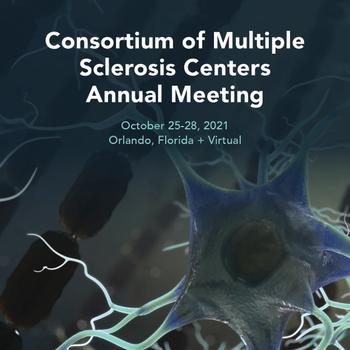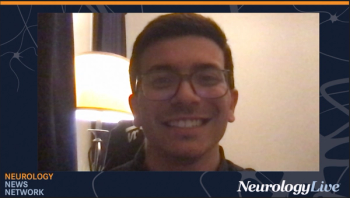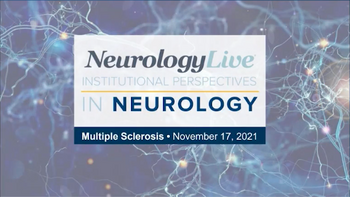
A total of 77 patients randomized to either ATH-1017 or placebo will be evaluated for improvements in cognition, global, and functional assessments across a 26-week treatment period.

A total of 77 patients randomized to either ATH-1017 or placebo will be evaluated for improvements in cognition, global, and functional assessments across a 26-week treatment period.

The director of the Comprehensive Epilepsy Center at NYU Langone discussed the necessary steps in validating and utilizing heart rate variability as a biomarker for SUDEP. [WATCH TIME: 3 minutes]

The risk of dementia was substantial and front-loaded following stroke, with the 1-year prevalence similar to the estimate for dementia at any time point. The findings indicate a need for greater engagement between stroke and dementia care.

Although headache and COVID-19 have been linked together in the literature, more studies are needed to better understand the pathophysiology of these headaches and to determine the best treatment options.

Reduced low-frequency power measured at rest was independently associated with an elevated SUDEP risk, presumably through arrhythmogenic mechanisms.

The director of the Mellen Center for MS Treatment and Research at Cleveland Clinic discussed when clinicians should anticipate new therapies to treat progressive MS. [WATCH TIME: 2 minutes]

The optimal range of HbA1c between 6.8% and 7.0% at admission was estimated to have the minimum risk for composite vascular events and stroke recurrence, with notably different levels according to stroke subtype.

The executive chair of the Rockefeller Neuroscience Institute at West Virginia University discussed the potential of focused ultrasound for patients with AD, as well as key takeaways for clinicians from a recent study. [WATCH TIME: 5 minutes]

Here's what is coming soon to NeurologyLive®.

Although not associated with diagnosis, investigators did conclude that substantial/very severe impact of headache attacks and anxiety were correlated with presence of insomnia.

Despite not being significantly superior to placebo on agitation and aggression, lithium showed a greater reduction in those with high Young Mania Rating Scale scores.

The NeurologyLive® team has compiled a roundup of our discussions with leaders in the multiple sclerosis field following the 2021 Annual Meeting of the Consortium of Multiple Sclerosis Centers (CMSC).

Episode 16 of the AUPN Leadership Minute features Rohit Das, MD, of UT Southwestern Medical Center; and Selim R. Benbadis, MD, FAAN, FACNS, FAES, University of South Florida Morsani College of Medicine. [WATCH TIME: 4 minutes]

Both fatigue and sleep quality were identified as potential risk factors linking sleep duration and self-rated health.

Neurology News Network for the week ending November 20, 2021.

Ali Rezai, MD, executive chair at the Rockefeller Neuroscience Institute at West Virginia University, outlined early data from a clinical trial utilizing focused ultrasound to open the blood-brain barrier in patients with mild AD.

Take 5 minutes to catch up on NeurologyLive®'s highlights from the week ending November 19, 2021.

The executive chair of the Rockefeller Neuroscience Institute at West Virginia University spoke on how technology can be used to open the blood-brain barrier in patients with AD. [WATCH TIME: 7 minutes]

The magnitude of neflamapimod’s effect on several efficacy measures proved to be consistent with the mechanism of action and prior preclinical data, with p-tau181 data suggesting a stronger effect on nonmixed Lewy body pathology.

The director of the Comprehensive Epilepsy Center at NYU Langone provided insight on whether a newly discovered biomarker can play a role in the creation of modalities to detect SUDEP risk. [WATCH TIME: 3 minutes]

Mind Moments™, a podcast from NeurologyLive®, brings you an exclusive interview with Karl Doghramji, MD, FAASM, DFAPA.

Chaired by Jennifer Graves, MD, PhD, MAS, the presentations also feature UC San Diego Health experts Jenelle Raynowska, MD; Jennifer Yang, MD; and Anastasie Dunn-Pirio, MD. [WATCH TIME: 1 hour, 23 minutes]

Ilya Kister, MD, professor of neurology, NYU Grossman School of Medicine, discussed his surprising results from ECTRIMS, which found no evidence of wearing off with ocrelizumab (Ocrevus; Genentech).

Contrary to previous expectations, 30 minutes of social media before bedtime did not significantly increase arousal or disturb sleep for study participants.

The guideline updates previous recommendations for dopaminergic medications published in 2002, integrating new medications and formulations.

Patients with REM sleep percentage less than 15% were associated with poorer horizontal optokinetic nystagmus grades and more severe illness.

The postdoctoral scholar at the University of Iowa commented on why the multiple sclerosis field should lean on registered dietitians to help alleviate symptoms of patients with multiple sclerosis. [WATCH TIME: 2 minutes]

The findings, which suggest that high plasma GFAP levels are parallel with AD and are markers of tau pathology, hold important implications in facilitating the detection of Alzheimer disease, particularly in the preclinical stage.

Ali Rezai, MD, executive chair of the Rockefeller Neuroscience Institute at West Virginia University, provided an overview of FUS technology and its use in opening the blood-brain barrier.

A higher incidence of gastrointestinal events was observed in the treatment group compared with placebo, similar to what was seen in clinical trials of AMX0035 in amyotrophic lateral sclerosis.